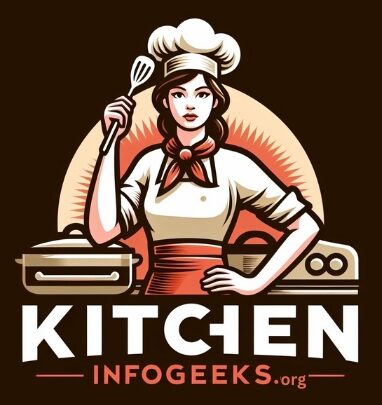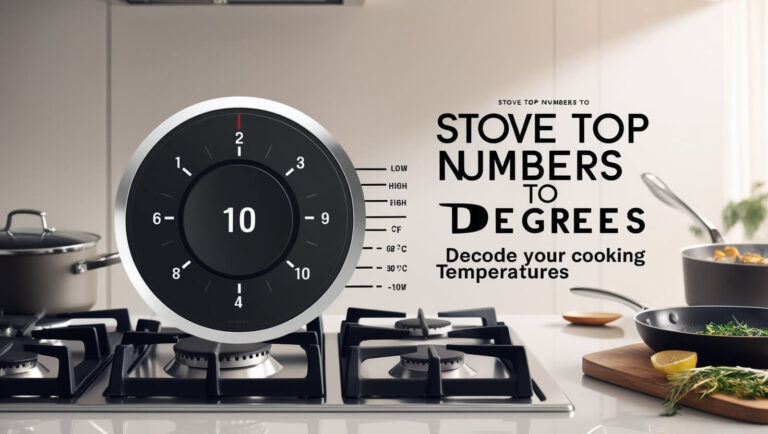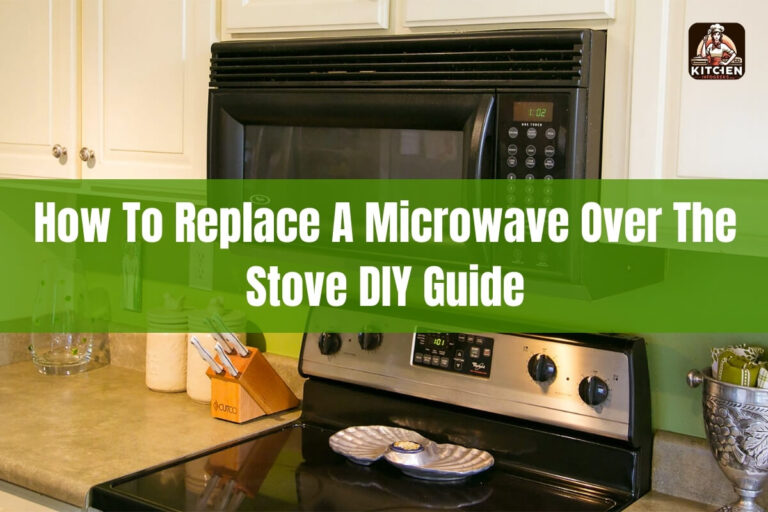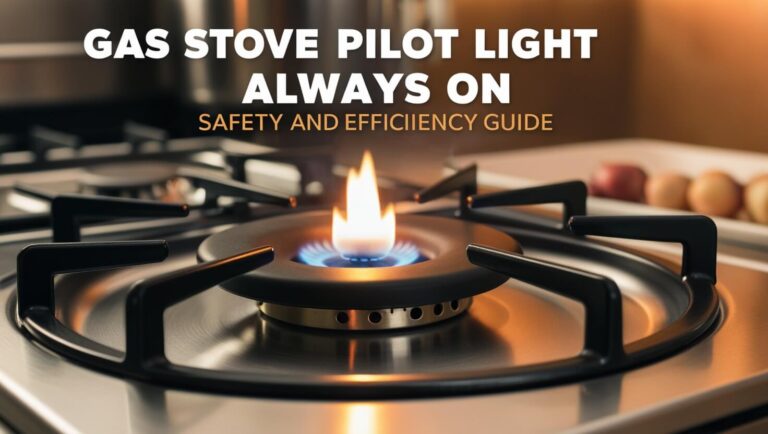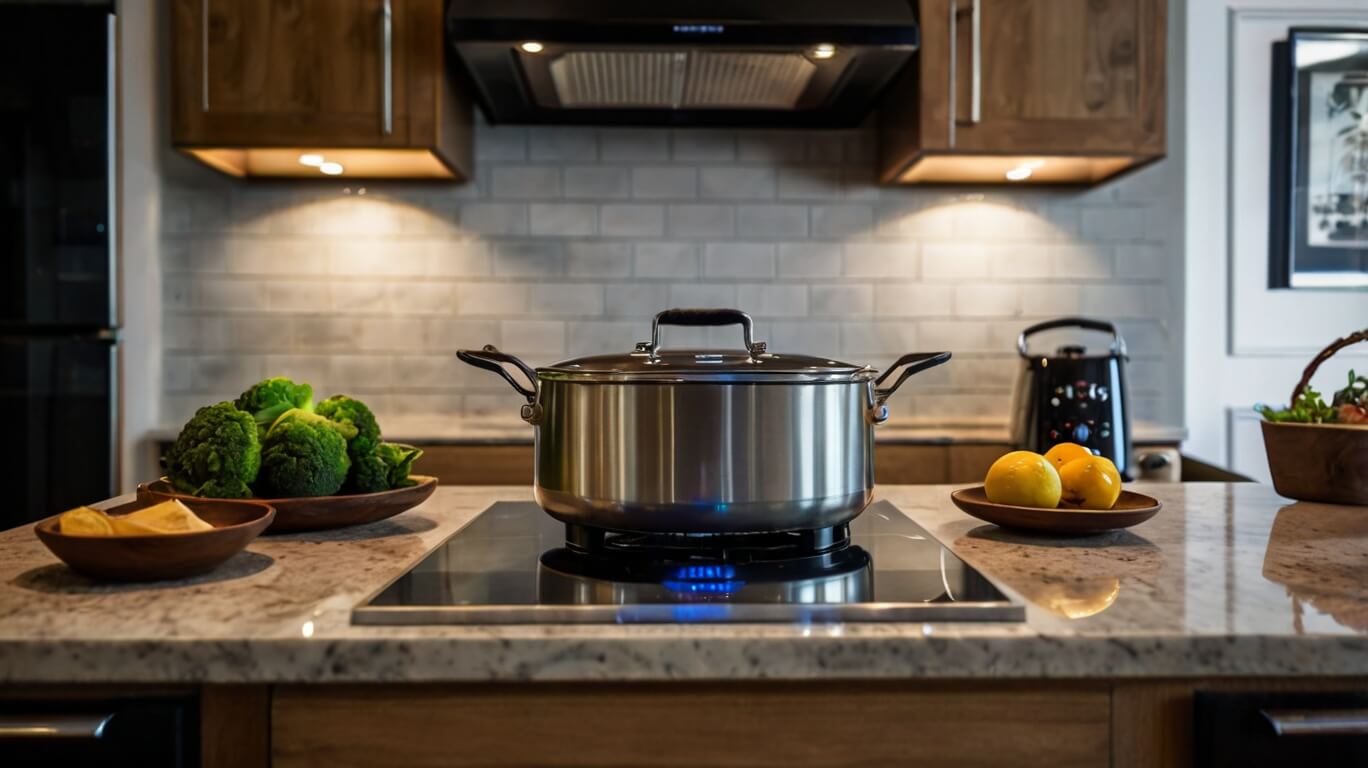
Electric stove popping sounds are often normal and caused by heating elements expanding or cooling. However, persistent or loud popping noises may indicate a problem requiring attention. This guide explores the reasons behind these noises, how to fix them, and when to seek professional help.
Common Causes of Popping Sounds in Electric Stoves
Electric stoves make various noises during operation. Understanding these sounds helps distinguish between normal operation and potential issues.
Heating and Cooling of Materials
As your stove heats up or cools down, different materials expand and contract at different rates. This can cause popping or crackling sounds. It’s especially common when:
- The stove is first turned on
- Temperature settings are changed
- The oven or burners are cooling after use
These noises are usually harmless and part of normal stove operation.
Electric Element Movement
Electric stove elements can shift slightly in their mounting brackets. This movement sometimes creates popping noises, particularly when:
- Elements are heating up
- The stove is new and parts are settling
- Connections are slightly loose
While usually not a concern, frequent or loud popping from elements may need inspection.
Infinite Control Switch Activation
Many electric stoves use infinite control switches to regulate burner temperature. When activated, these switches can make a popping sound as they make electrical contact. This noise is:
- Brief and occurs when turning on a burner
- Normal for many stove models
- Not typically a cause for concern
Moisture and Spills on Burners
Water or food spills on burners can cause popping sounds when heated. This happens because:
- Liquid rapidly turns to steam
- Expanding steam creates small explosions
- Food particles may pop or crackle when heated
Clean burners regularly to prevent these noises and maintain your stove’s performance.
Differentiating Normal vs. Concerning Popping Noises
Not all popping sounds from electric stoves are harmless. Knowing the difference helps you maintain your appliance and ensure safety.
Typical Sounds During Stove Operation
Normal popping noises are usually:
- Soft or barely noticeable
- Infrequent or only during temperature changes
- Not accompanied by other issues like failure to heat
These sounds rarely indicate a problem with your stove.
Red Flags: When Popping Indicates a Problem
Be alert for popping sounds that are:
- Loud or startling
- Frequent or continuous
- Accompanied by sparks, smoke, or burning smells
- Occurring with heating issues or malfunctions
These may signal electrical problems or component failure requiring immediate attention.
Troubleshooting Electric Stove Popping Sounds
When popping noises concern you, start with these troubleshooting steps.
Inspecting Burner Elements and Connections
Check your stove’s burner elements:
- Ensure elements sit properly in their sockets
- Look for signs of damage or warping
- Clean any debris or spills around the elements
- Gently wiggle elements to check for loose connections
Loose or damaged elements can cause unusual noises and should be addressed.
Checking the Control Panel and Switches
Examine your stove’s control panel:
- Look for any visible damage or loose parts
- Test each knob and button for proper function
- Listen for unusual sounds when operating controls
- Check for any signs of overheating or burning
Faulty controls can lead to irregular heating and popping sounds.
Examining the Glass Cooktop Surface
For glass cooktop stoves:
- Inspect the surface for cracks or chips
- Clean thoroughly to remove any built-up residue
- Check that burner elements are flush with the surface
- Look for any signs of warping or separation
Damage to the cooktop can affect heating and cause strange noises.
DIY Solutions for Minor Popping Issues
Many electric stove popping sounds can be resolved with simple home fixes.
Cleaning and Drying Burners
Regularly clean your stove’s burners:
- Remove burner elements if possible
- Wipe down with a damp cloth and mild detergent
- Dry thoroughly before replacing
- For coil burners, clean drip pans as well
Clean, dry burners are less likely to produce popping sounds from moisture or food particles.
Realigning Burner Caps and Elements
Ensure all parts are properly aligned:
- Remove and clean burner caps
- Check for any damage or warping
- Realign caps carefully on burners
- For coil elements, ensure they’re seated correctly in sockets
Proper alignment reduces movement and potential noise.
Tightening Loose Connections
Carefully check for and tighten any loose parts:
- Unplug the stove or turn off power at the breaker
- Tighten any visible screws or fasteners
- Ensure burner elements are securely connected
- Check control knobs for tightness
Loose components can vibrate and cause popping sounds.
When to Call a Professional
Some electric stove issues require expert attention. Know when to seek help.
Signs of Electrical Problems
Call a professional if you notice:
- Sparks or arcing from elements or controls
- Burning smells or visible smoke
- Repeated tripping of circuit breakers
- Shocks when touching the stove
These symptoms may indicate serious electrical issues.
Persistent Popping After DIY Attempts
If popping continues after your efforts:
- The problem may be internal or complex
- Professional diagnostic tools might be needed
- Attempting further repairs could be dangerous
A qualified technician can safely identify and fix the issue.
Warranty Considerations
Before calling a repair service:
- Check if your stove is still under warranty
- Contact the manufacturer for covered repairs
- Using unauthorized repairs may void your warranty
Professional service ensures your warranty remains valid.
Preventing Future Popping Sounds
Proper care helps minimize unusual noises from your electric stove.
Proper Stove Maintenance
Regular maintenance includes:
- Cleaning burners and drip pans weekly
- Checking and tightening connections monthly
- Inspecting elements for damage or wear
- Keeping the oven and cooktop clean
Well-maintained stoves are less likely to develop noise issues.
Careful Use and Cleaning Practices
Protect your stove during use:
- Avoid spills by using appropriate cookware sizes
- Clean spills immediately to prevent burning
- Don’t drag pots and pans across the cooktop
- Use gentle cleaning products to avoid damage
These habits reduce wear and potential causes of popping sounds.
Regular Inspections
Perform routine checks:
- Look for signs of wear or damage monthly
- Test all functions regularly
- Listen for changes in normal operating sounds
- Address minor issues before they worsen
Catching problems early prevents more serious issues later.
Understanding Electric Stove Components
Knowing your stove’s parts helps you identify potential noise sources.
Heating Elements and Their Function
Electric stove elements:
- Convert electricity to heat
- Come in coil or radiant designs
- Expand slightly when heated
- May make soft sounds during normal operation
Understanding how elements work helps distinguish normal noises from problems.
Control Mechanisms and Switches
Stove controls include:
- Temperature regulators
- Infinite switches for burners
- Digital controls on modern models
- Relays and circuit boards
These components can produce clicking or popping sounds during operation.
Wiring and Electrical Connections
The stove’s electrical system:
- Carries high voltage and current
- Can degrade over time
- May loosen due to heat cycles
- Should only be serviced by professionals
Faulty wiring often causes unusual noises and poses safety risks.
Safety Considerations with Electric Stove Noises
Prioritize safety when dealing with electric stove sounds.
Electrical Hazards to Watch For
Be alert for:
- Visible sparks or arcing
- Buzzing or humming sounds
- Shocks when touching metal parts
- Burning smells or smoke
These signs indicate potentially dangerous electrical issues.
Fire Prevention Tips
Reduce fire risks:
- Keep flammable items away from burners
- Never leave cooking unattended
- Use appropriate cookware for your stove type
- Install and maintain smoke detectors in the kitchen
A well-maintained stove in a safe kitchen environment reduces hazards.
When to Disconnect Power
Turn off power to your stove if:
- You smell burning plastic or wires
- Sparks or smoke are visible
- The stove shocks you when touched
- Circuit breakers trip repeatedly
Safety comes first – don’t use the stove until it’s inspected by a professional.
Comparing Popping Sounds in Different Stove Types
Various electric stove designs may produce different noises.
Electric Coil vs. Glass Cooktop Stoves
Coil stoves often:
- Make more noticeable expansion sounds
- Have removable elements for easy cleaning
- Produce pops from drip pan heat expansion
Glass cooktops typically:
- Have quieter operation
- May crack if damaged, causing pops
- Require special cleaning to prevent noise-causing residue
Induction Stoves and Unique Noises
Induction cooktops:
- Use magnetic fields to heat, reducing expansion noises
- May produce humming or buzzing instead of pops
- Can make sounds from cookware vibration
Understanding your stove type helps interpret its normal sounds.
Frequently Asked Questions About Electric Stove Popping
Addressing common concerns about electric stove noises.
Is a Clicking Sound Normal When Turning On the Stove?
A brief click when activating burners is usually normal. It often comes from:
- Temperature controls engaging
- Relays activating heating elements
- Normal expansion of stove components
Continuous or loud clicking may need investigation.
Can Weather Affect Stove Noises?
Weather can influence stove sounds:
- Humidity may increase popping from moisture
- Temperature changes can affect material expansion rates
- Dry conditions might reduce some noises
These effects are usually minor and don’t indicate problems.
How Often Should I Expect to Hear Popping Sounds?
Occasional soft pops are normal, especially:
- When first turning on the stove
- During significant temperature changes
- As the stove cools down after use
Frequent or loud pops warrant closer inspection.
Conclusion: Ensuring a Quiet and Safe Cooking Experience
Electric stove popping sounds are often harmless, resulting from normal heating and cooling processes. Regular maintenance, proper use, and prompt attention to unusual noises help ensure your stove’s longevity and safety. By understanding the causes of these sounds and knowing when to seek professional help, you can enjoy worry-free cooking on your electric stove for years to come. Remember, when in doubt about a persistent or concerning noise, it’s always best to consult with a qualified appliance technician.
